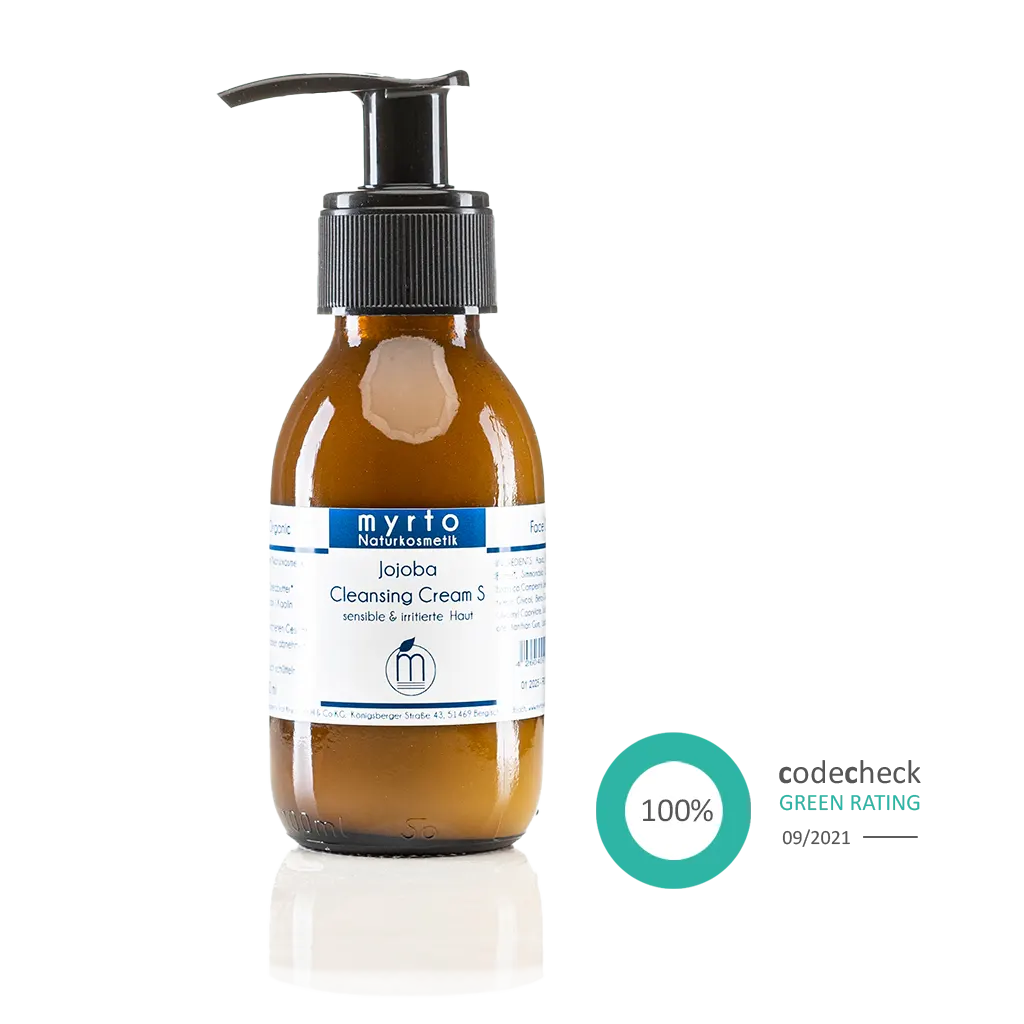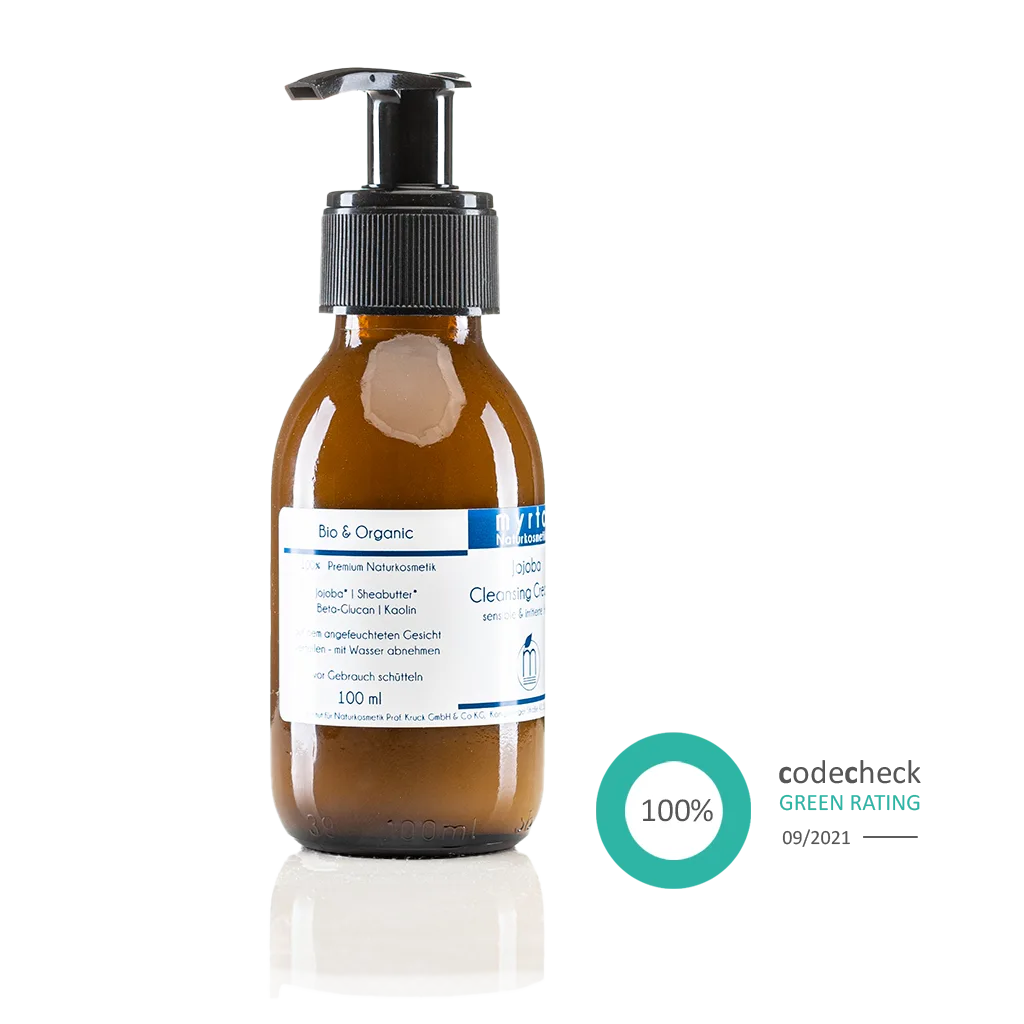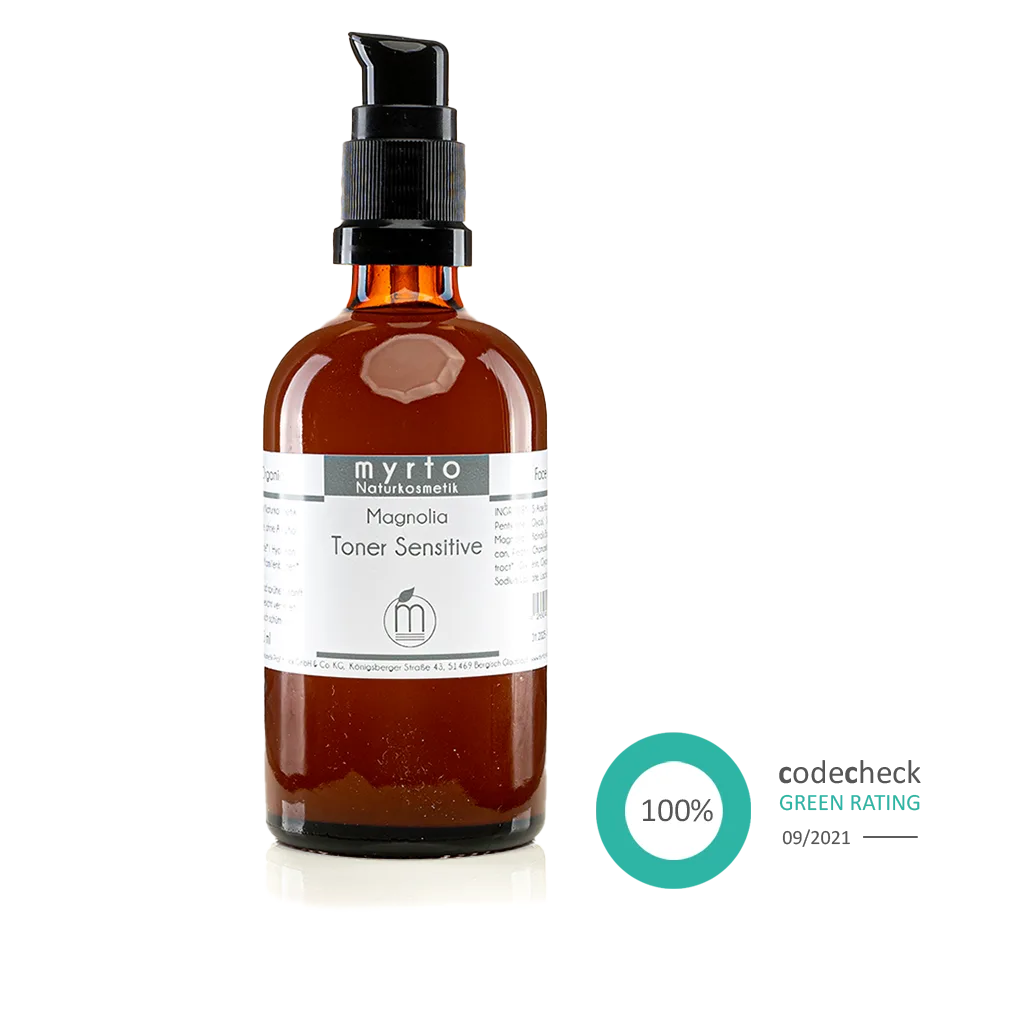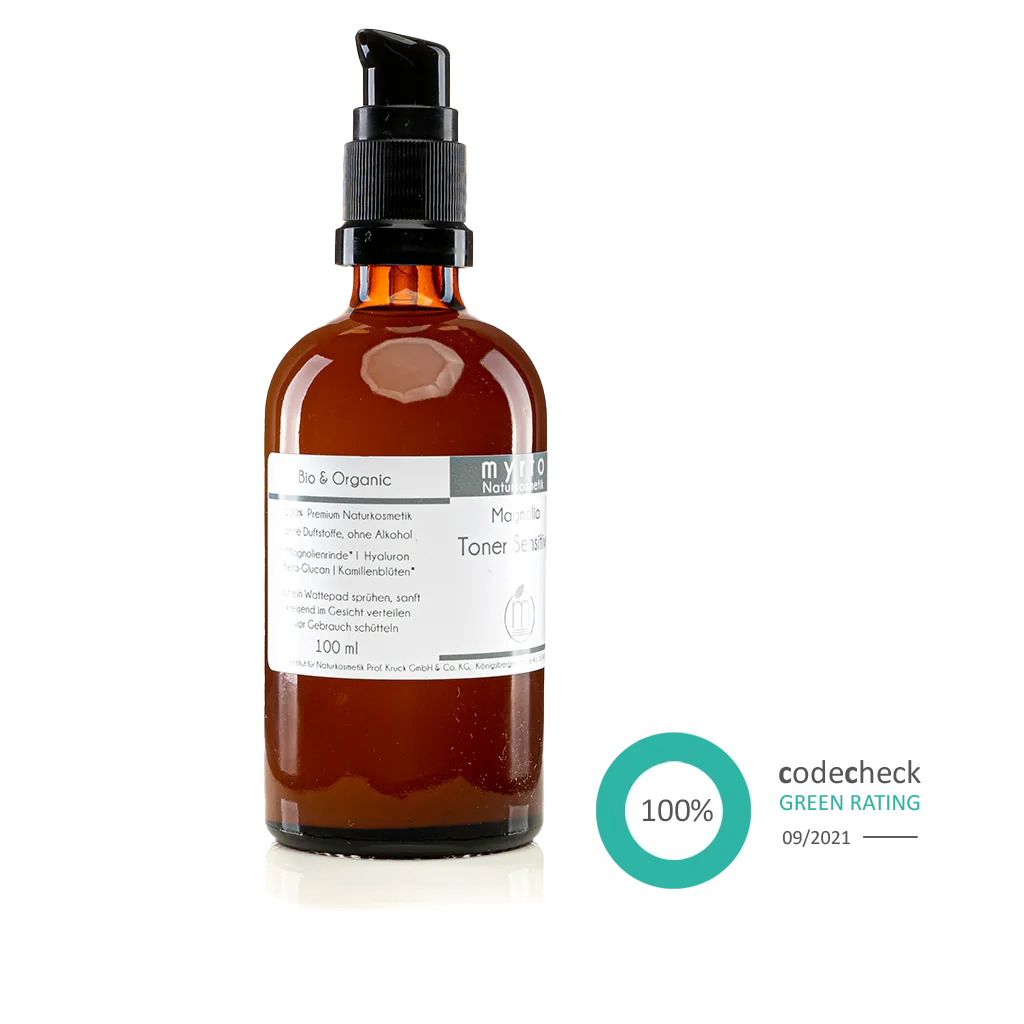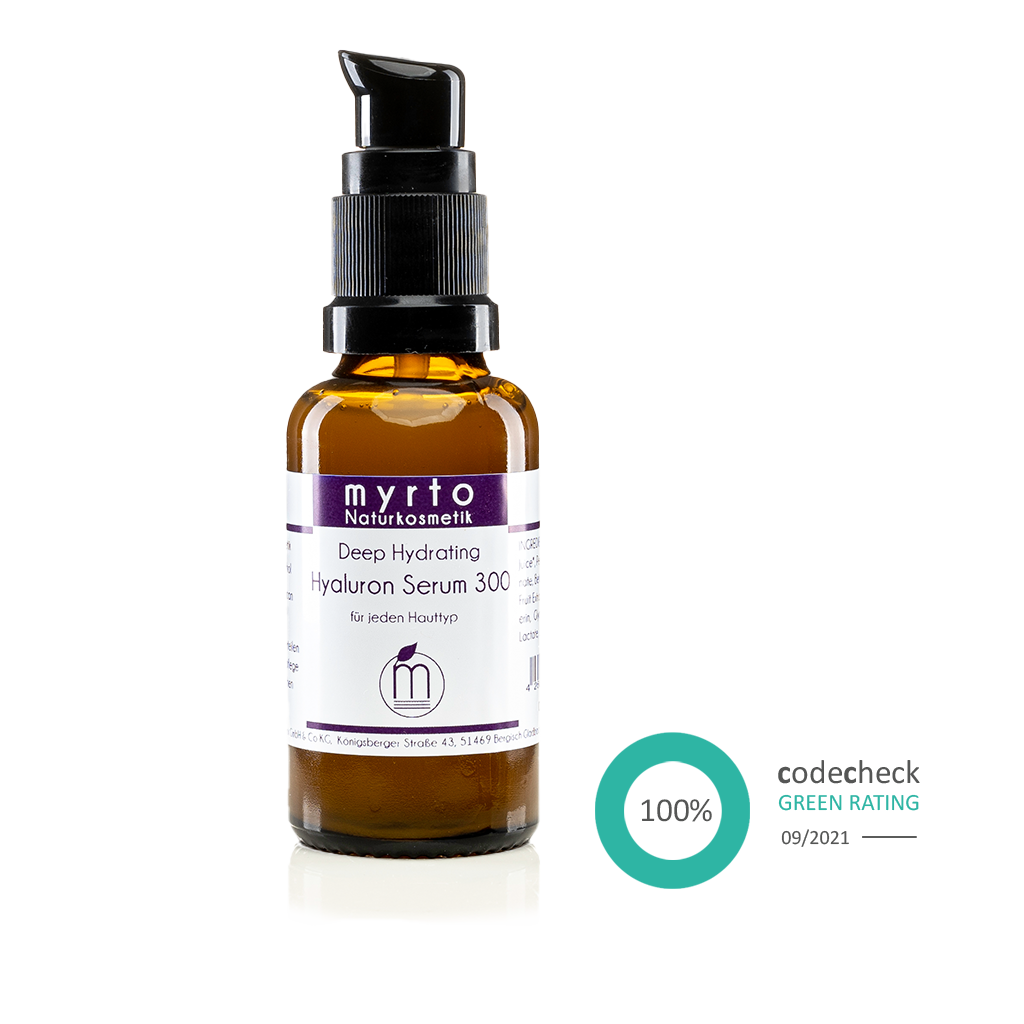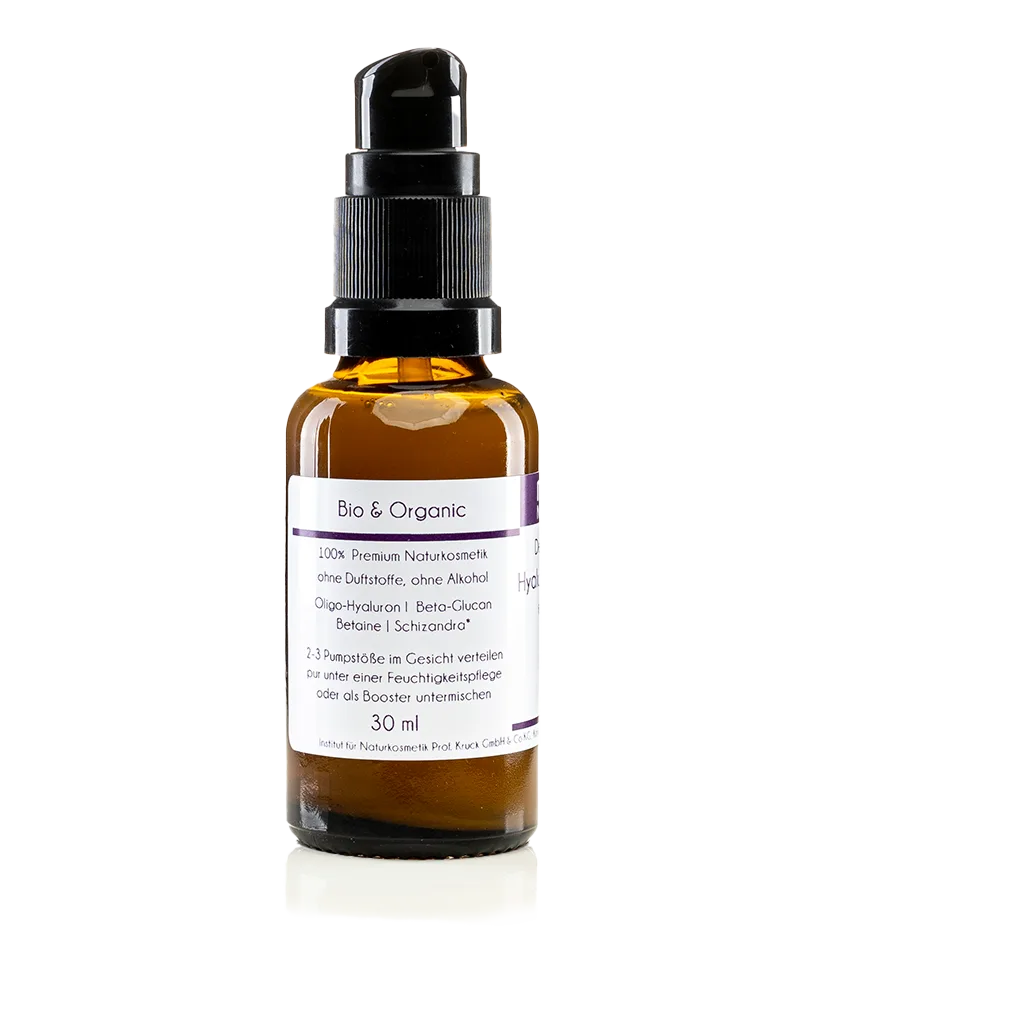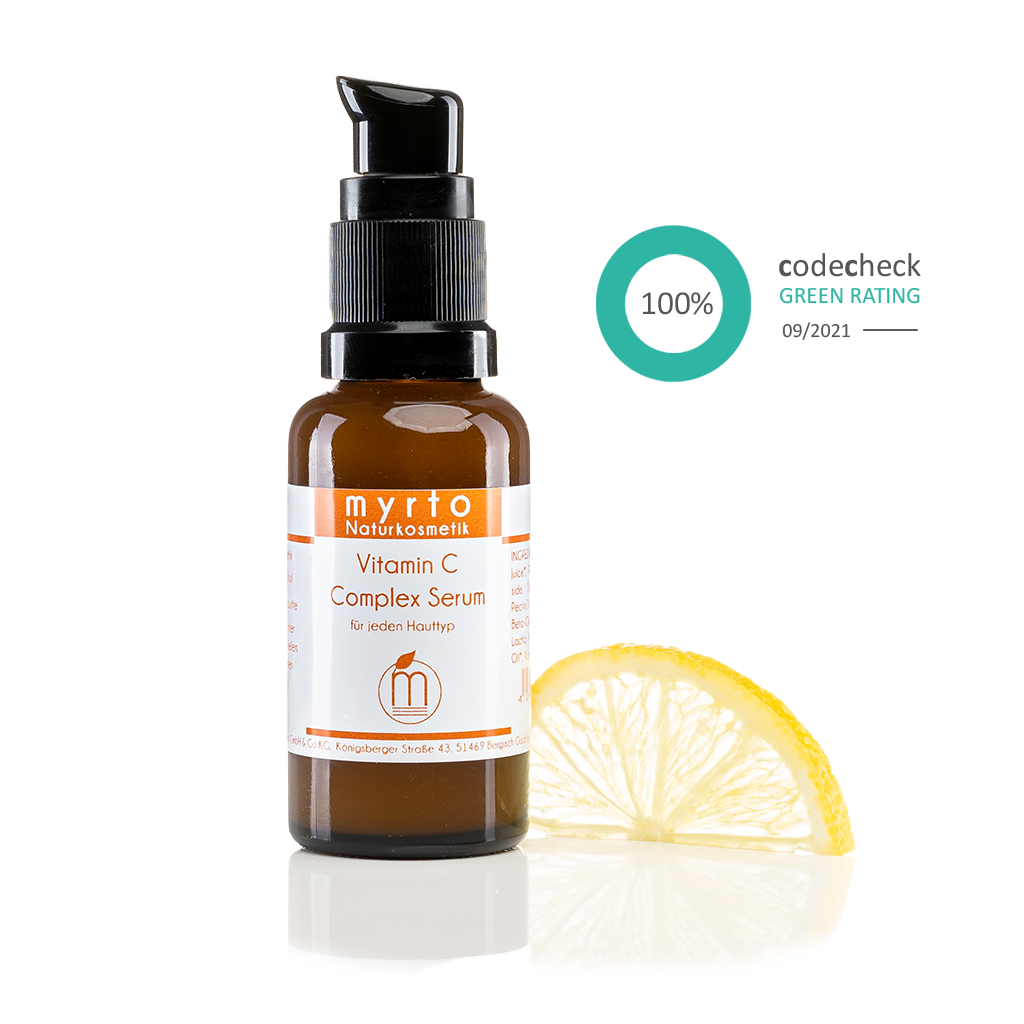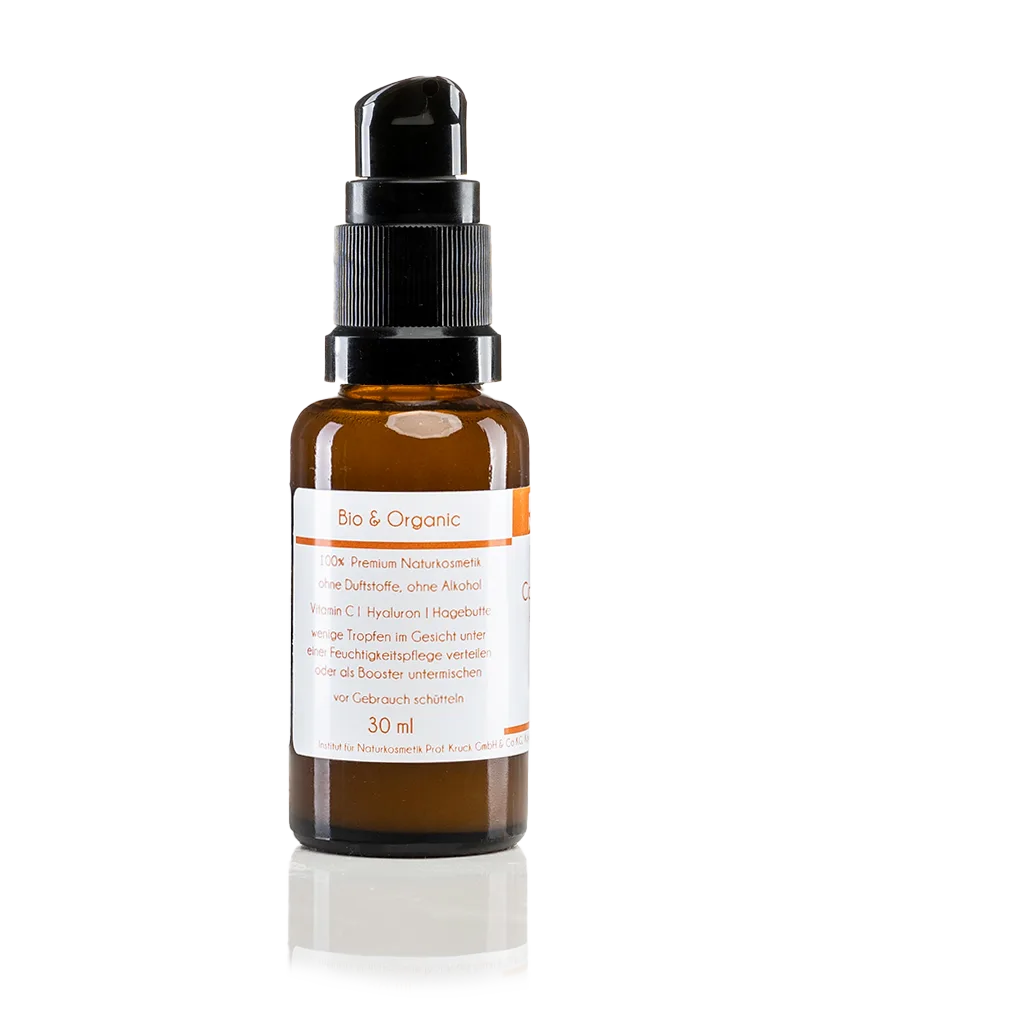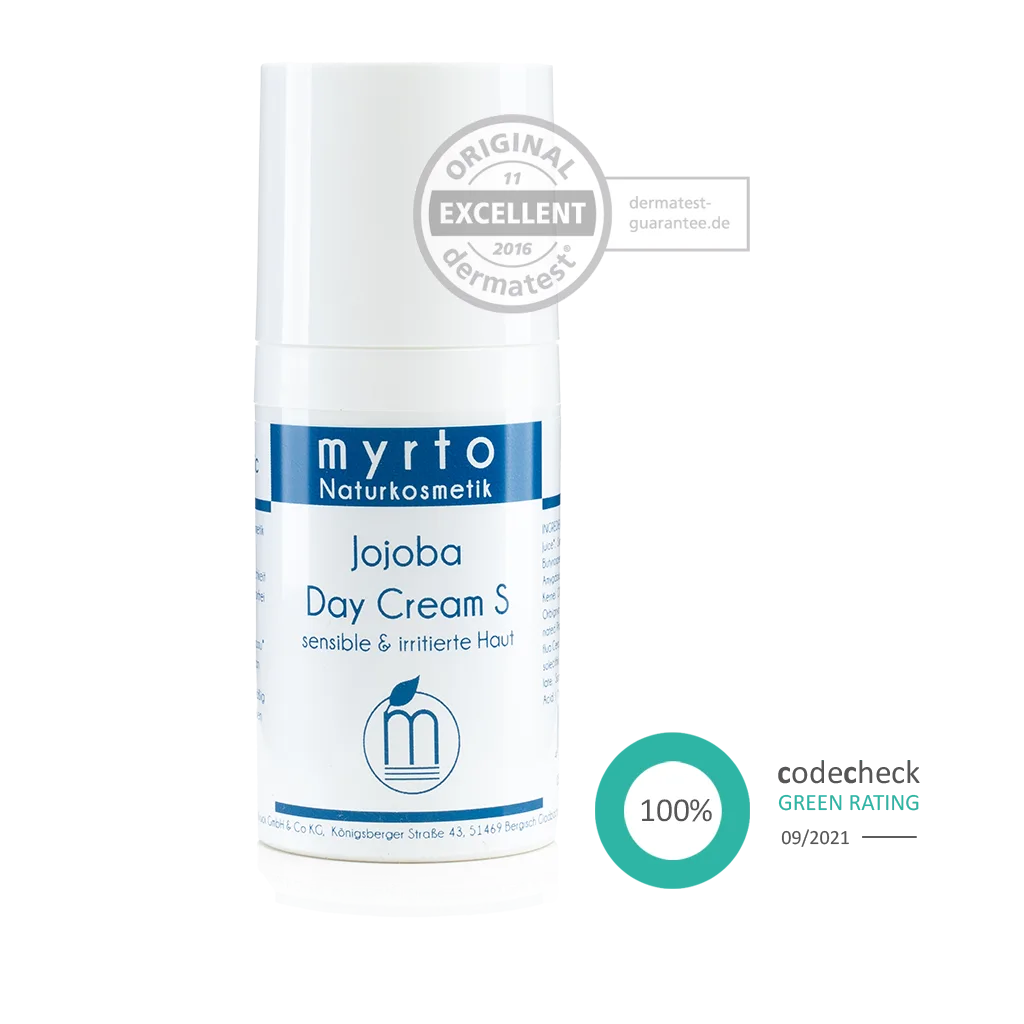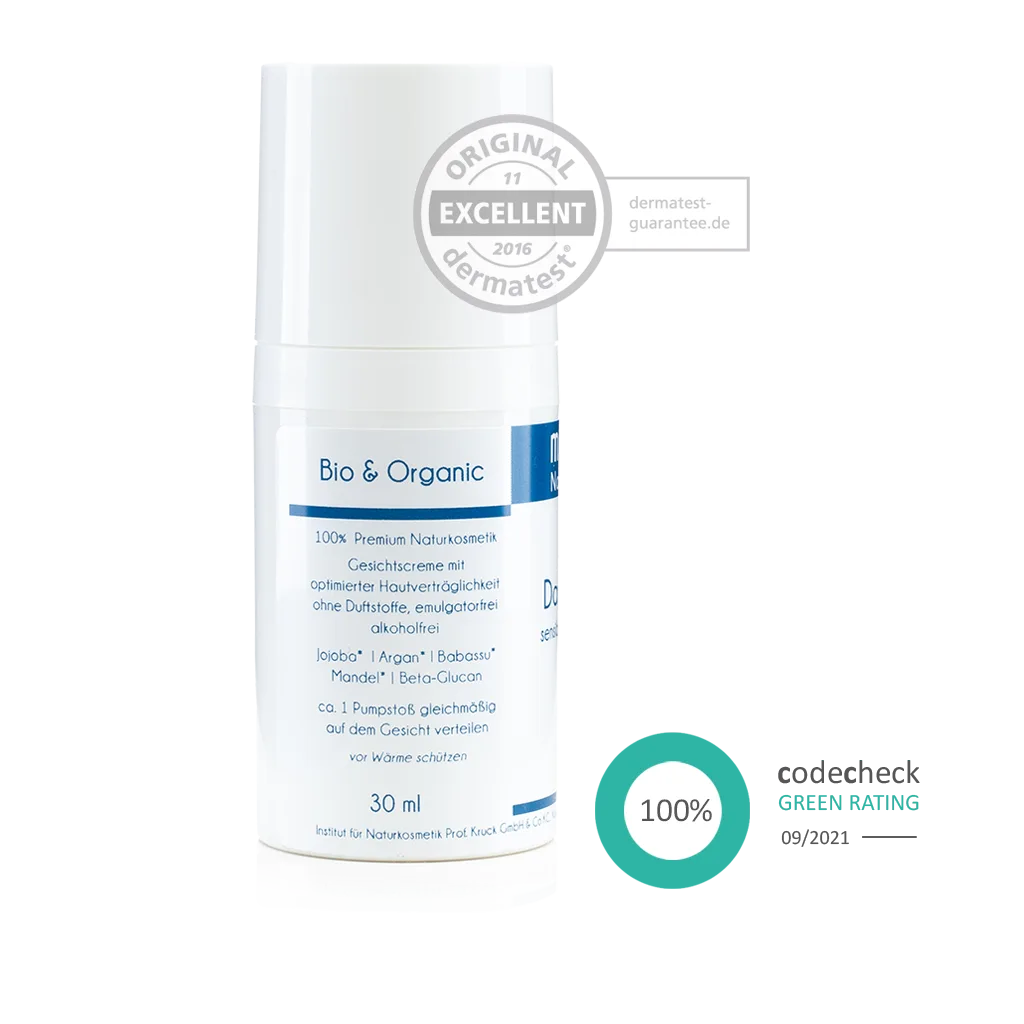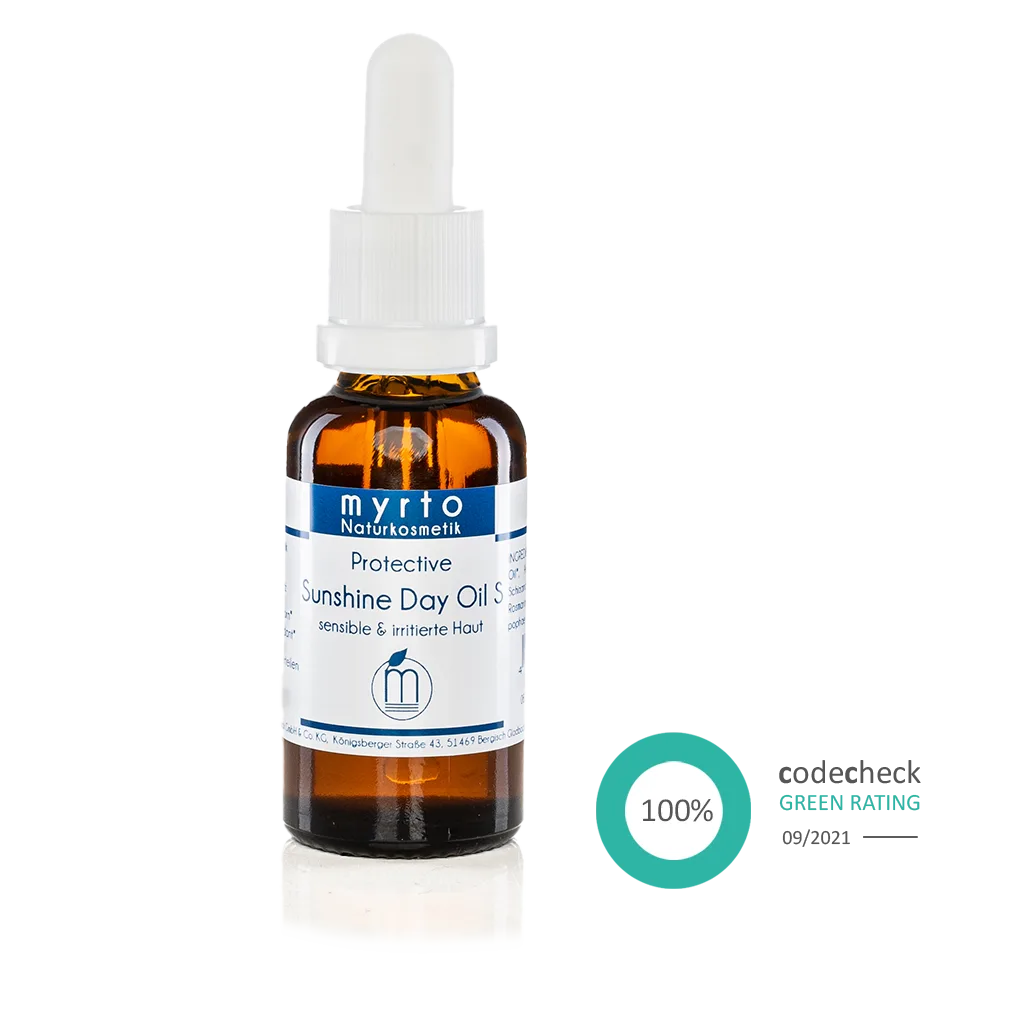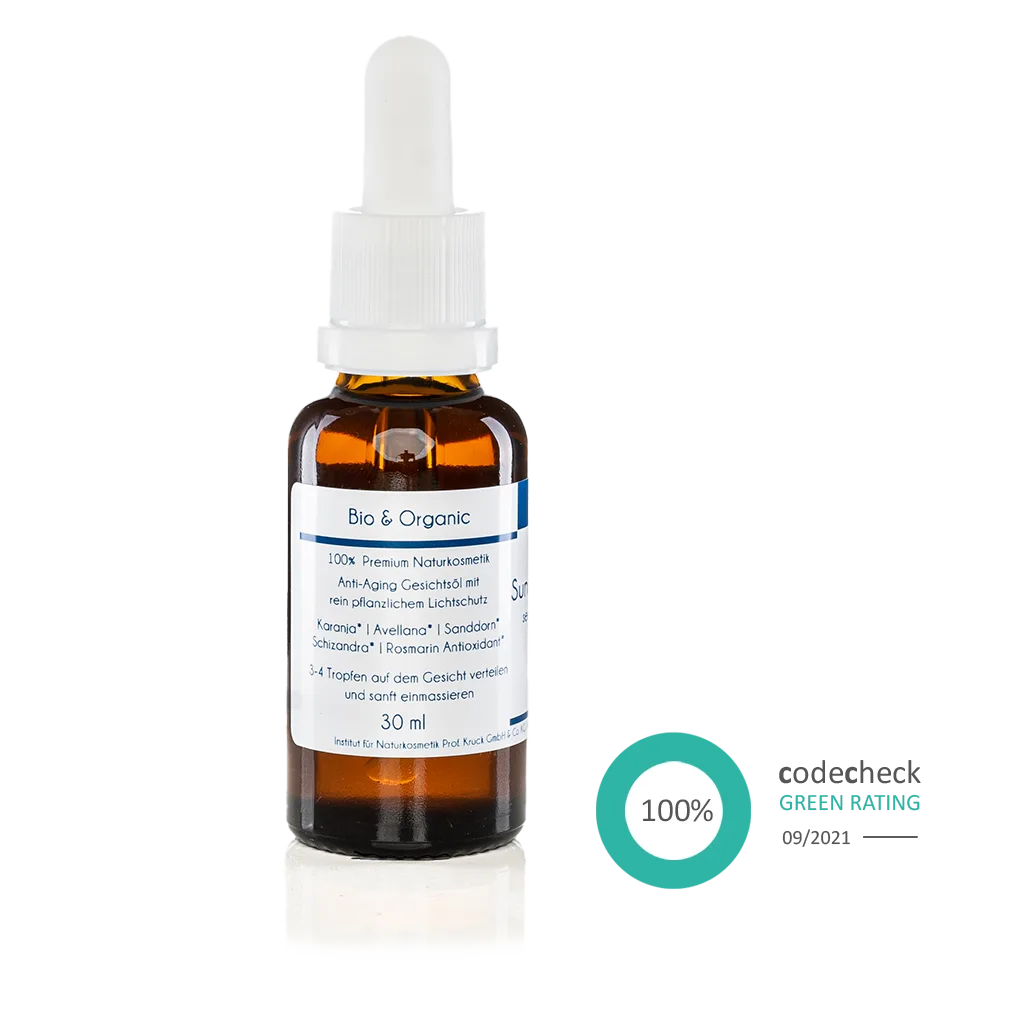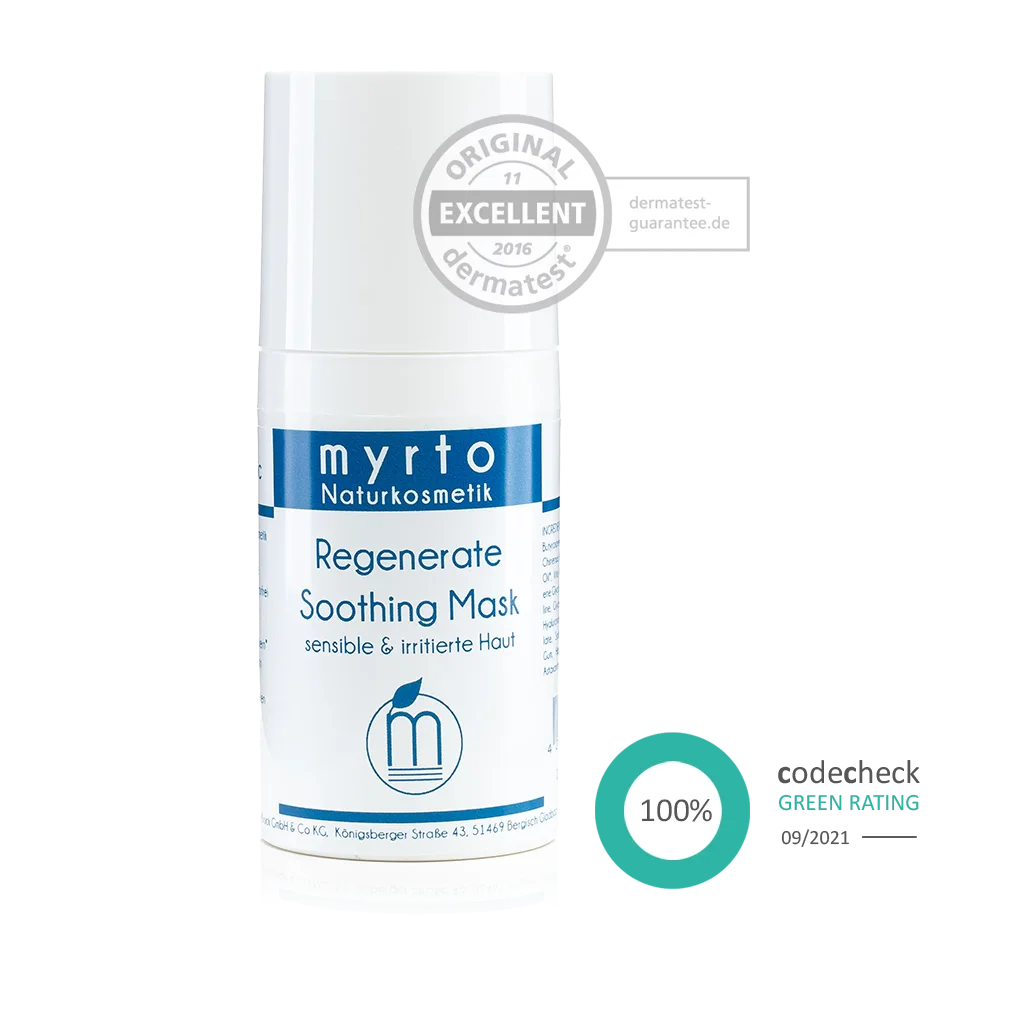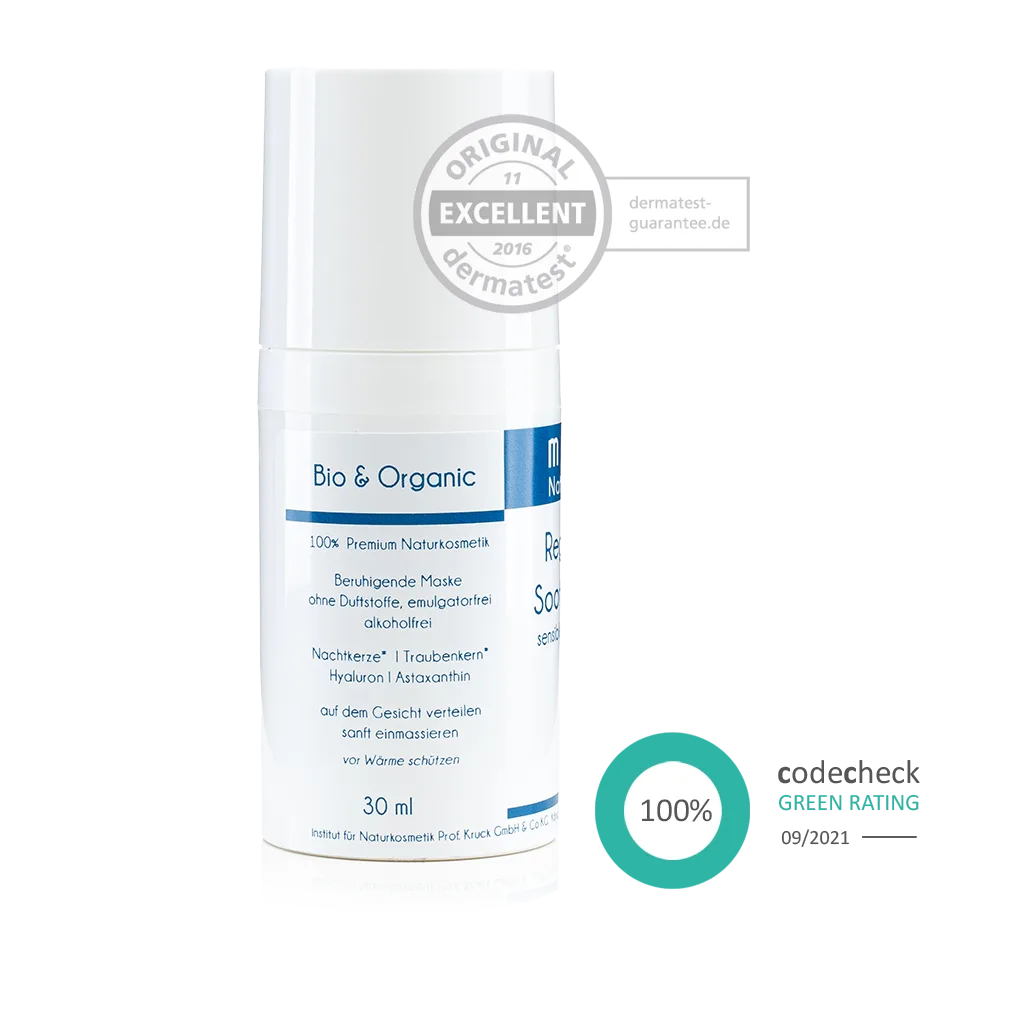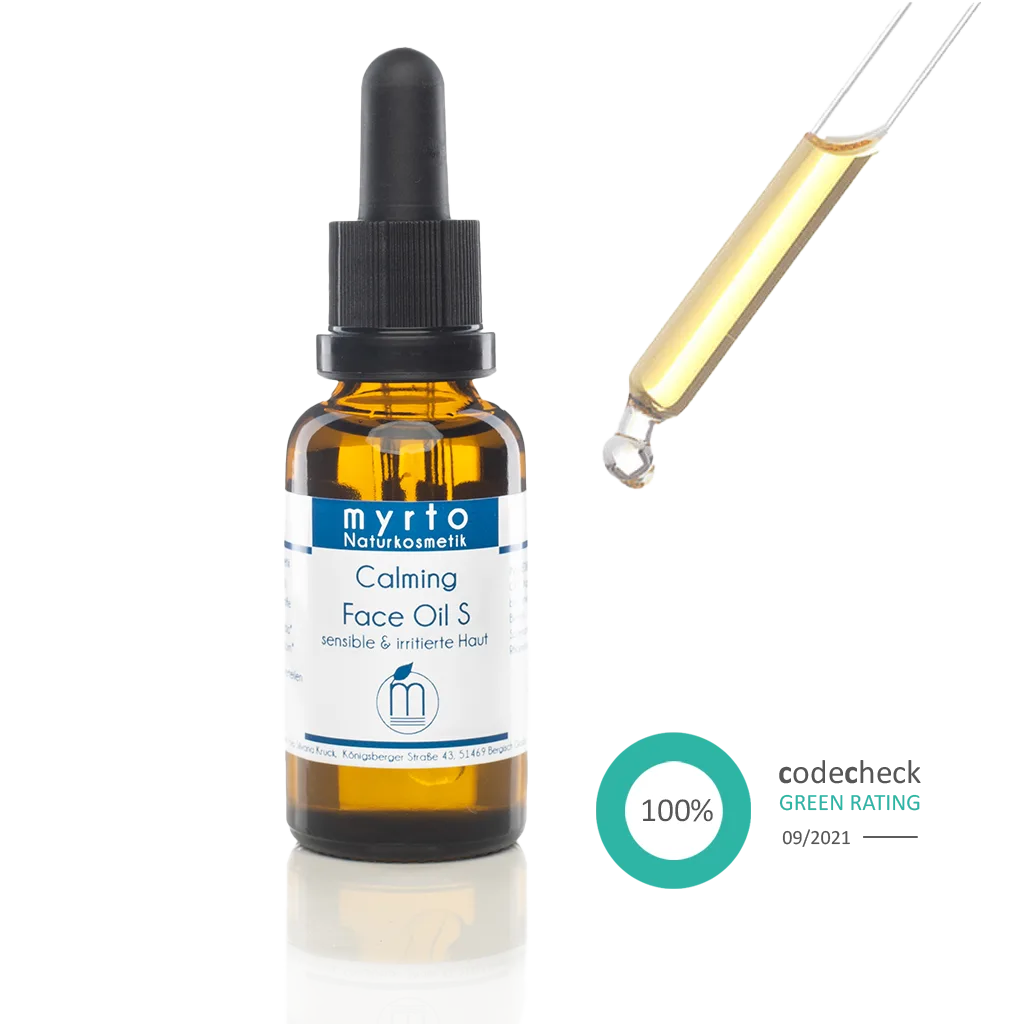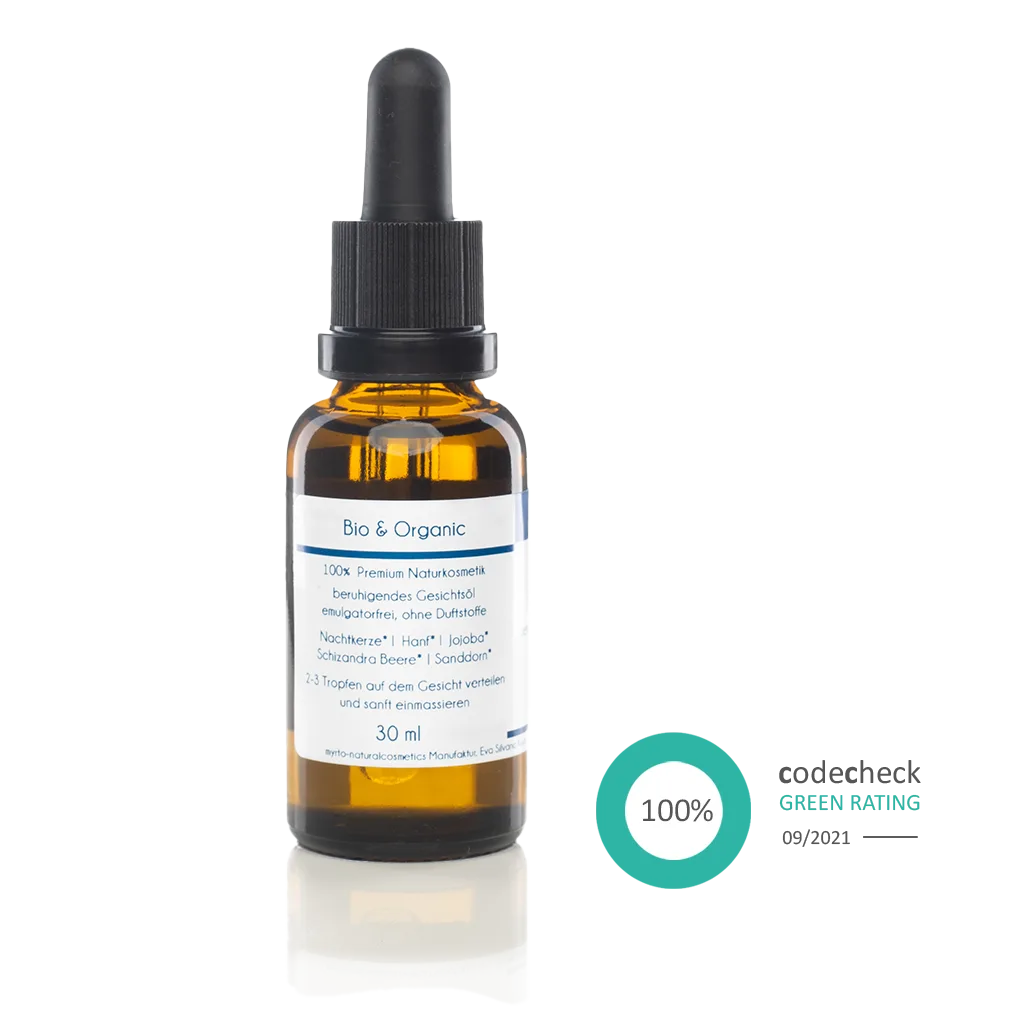Filters
Sensitive skin – organic facial care without alcohol & fragrances
Natural cosmetics for sensitive, irritated skin – without alcohol, fragrances, emulsifiers, or conventional preservatives. It strengthens the skin barrier and noticeably soothes.
Gentle organic facial care for sensitive skin
Sensitive skin reacts hypersensitively to internal and external stimuli – whether caused by stress, environmental pollution, improper skincare products, or genetic predisposition. Our myrto organic facial care was specially developed for sensitive, irritated skin: free from alcohol, fragrances, preservatives, and emulsifiers.
What characterizes sensitive skin?
- Tendency to irritation, itching, tightness or redness
- Overreaction to UV radiation, cold, air conditioning or screen light
- Weakened skin barrier with increased permeability
Skin dries out faster and is significantly more sensitive than normal skin. Therefore, it needs care that soothes, protects, and strengthens its natural defenses—without overtaxing it.
Typical causes of hypersensitive skin
- Unsuitable care: aggressive surfactants, emulsifiers, perfumes or alcohol
- Genetics: innate sensitivity of the skin
- Stress: promotes inflammation and skin reactions
- Allergies or intolerances (e.g. to cosmetic ingredients or food)
- Hormonal changes: puberty, pregnancy or menopause
- Medications or environmental toxins: such as household toxins, UV radiation, blue light or air pollutants
Why we do not use emulsifiers
Emulsifiers disrupt the skin's barrier by washing out the skin's own lipids – especially upon subsequent contact with water. This dries out the skin and makes it more permeable to irritants. Our myrto facial care is formulated without emulsifiers and preserves your skin's lipid structure – for more moisture, regeneration, and protection.
Soothing natural ingredients for sensitive skin
- Jojoba, argan, hemp, and evening primrose oil: moisturizing and anti-inflammatory
- Beta-glucan (from oats): strengthens the skin barrier, has an anti-inflammatory and moisture-binding effect
- Schizandra, licorice root & green tea: antioxidant, cell-protective & soothing
Gentle care routine for sensitive skin
- Cleansing: Bio Jojoba Cleansing Cream S – without surfactants, alcohol or fragrances
- Toner: Organic Magnolia Toner Sensitive – alcohol-free & skin-soothing
- Serum: Hyaluronic Acid Serum 300 – with Aloe Vera & Beta-Glucan
- Moisturizer: Bio Jojoba Day Cream S – rich but non-greasy
- Facial oil (optional): Sunshine Day Oil S for day & Calming Face Oil S for night
Important tips for changing your facial care routine
- Start with just one new product – if well tolerated, the next one follows after 4–7 days
- Avoid peelings during the transition period
- For tightness: Apply 2-3 drops of facial oil over your moisturizer
- Vitamin C, Bakuchiol or Niacinamide: introduce slowly & start selectively
General facial care tips for sensitive skin
- Less is more: rely on minimalist, hypoallergenic formulations
- Avoid fragrances, emulsifiers & alcohol – even in make-up
- Cleanse thoroughly: e.g., with Deep Cleansing Oil in the evening
Conclusion
Our care products are vegan, emulsifier-free and reduced to the essentials – for a strong skin barrier and a balanced complexion that noticeably regenerates.



